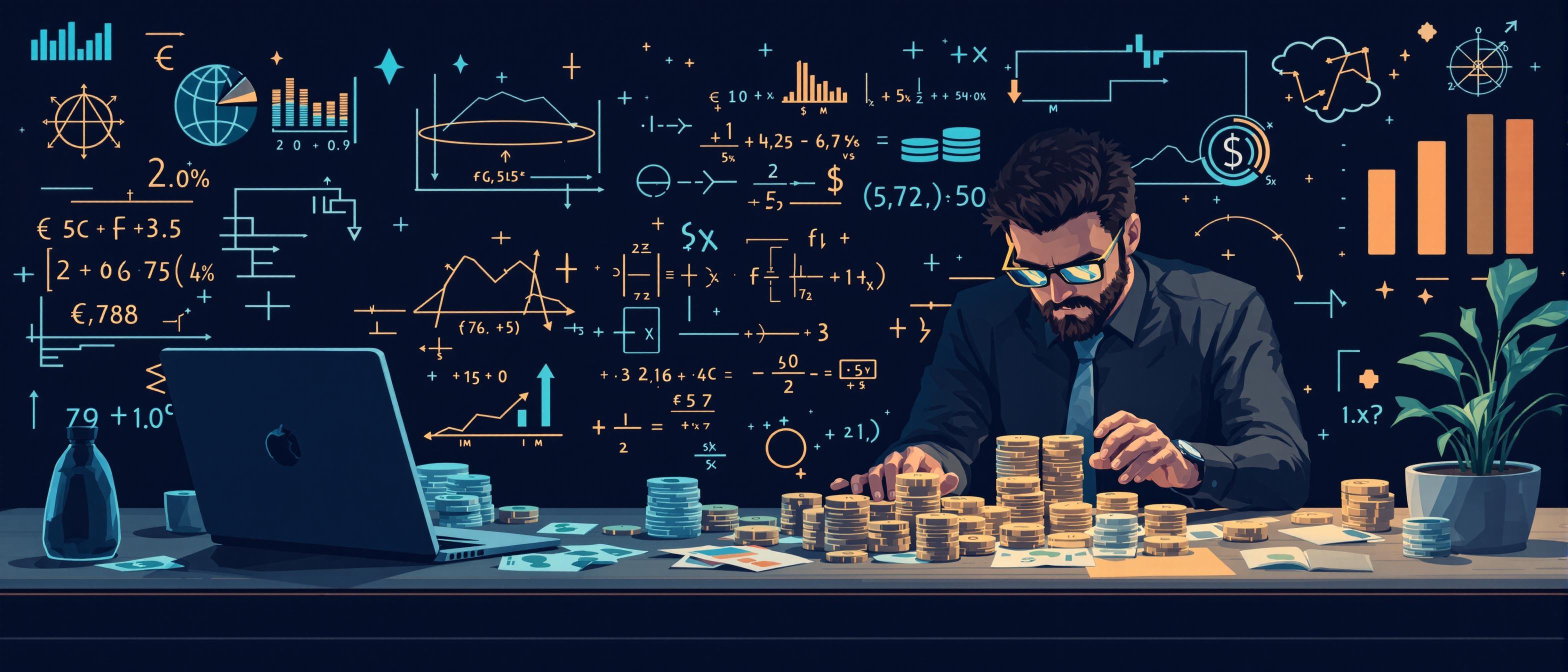The Myth of Homo Oeconomicus: Why We're Not Rational Decision-Makers
In economic theory, Homo Oeconomicus represents the ideal of a rational individual who makes decisions based solely on maximizing utility and well-being. However, research has shown that we systematically deviate from this ideal, due to cognitive biases that influence our decision-making.
Cognitive biases are systematic errors in thinking that affect our judgments and choices. Unlike random mistakes, these biases are predictable and can be studied. By understanding where and when we diverge from optimal decision-making, we can try to reduce these deviations.
Let's take a closer look at three common cognitive biases: loss aversion, anchoring bias, and confirmation bias.
- Loss aversion: We tend to fear losses more than we value gains. For example, losing $10 can be more painful than the enjoyment of gaining $10. This bias leads us to avoid risks and over-insure ourselves.
- Anchoring bias: We often rely too heavily on initial information, using it as a reference point for subsequent decisions. This can lead to suboptimal choices, such as overpaying for a product because the initial price offering was high.
- Confirmation bias: We tend to favor information that supports our existing beliefs and ignore contradictory evidence. This reinforces our views, leading to distorted thinking and poor decision-making.
So, why can't we simply study all these biases and become optimal decision-makers? The problem is that considering all these factors requires a lot of mental energy. According to Daniel Kahneman's System 1 and System 2 framework, intuitive thinking (System 1) is prone to cognitive biases, while analytical thinking (System 2) is more energy-intensive. Trying to use System 2 for every decision would be exhausting and might not even lead to better outcomes, considering that you sacrificed lots energy in the thinking process.
Instead, we should evaluate the importance of each decision and decide whether it's worth the effort to seek a mathematically optimal solution. Sometimes, the potential payoff of an optimal decision might not be worth the energy required to calculate it. By being aware of our cognitive biases and using our mental energy wisely, we can make better decisions and become more effective decision-makers.
When to Seek a Mathematically Optimal Solution
In certain areas of life, seeking a mathematically optimal solution is more important than in other areas. These include:
- Education: Choosing the right school or program can have a significant impact on future career prospects and earning potential.
- Finances: Making informed investment decisions and managing debt can make a big difference in long-term financial stability.
- Politics: Understanding the implications of policy decisions and voting accordingly can shape the future of a country.
- Health: Making informed decisions about medical treatment and lifestyle choices can have a significant impact on overall well-being.
On the other hand, there are areas where seeking a mathematically optimal solution may not be as important. These include:
- Relationships: Building strong relationships with family and friends is often more about emotional intelligence and empathy than mathematical optimization.
- Helping others: Deciding whether to volunteer or donate to charity is often a matter of personal values and altruism rather than mathematical calculation.
Further Reading
If you're interested in learning more about cognitive biases and optimal decision-making, consider reading the following books:
- "Thinking, Fast and Slow" by Daniel Kahneman: A comprehensive exploration of the two systems that govern our thinking and decision-making.
- "The Art of Thinking Clearly" by Rolf Dobelli: A practical guide to recognizing and overcoming cognitive biases.
- "The Art of Strategy: A Game Theorist's Guide to Success in Business and Life" by Avinash K. Dixit and Barry J. Nalebuff: A strategic approach to decision-making that takes into account the actions and reactions of others.
Summary
The myth of Homo Oeconomicus assumes that humans are rational decision-makers who always act in their own best interests. However, cognitive biases and limited mental energy often lead to suboptimal decisions. By understanding these biases and evaluating the importance of each decision, we can make better choices and become more effective decision-makers. By seeking a mathematically optimal solution in areas that matter most and being aware of our cognitive biases, we can achieve better outcomes and improve our overall well-being.
